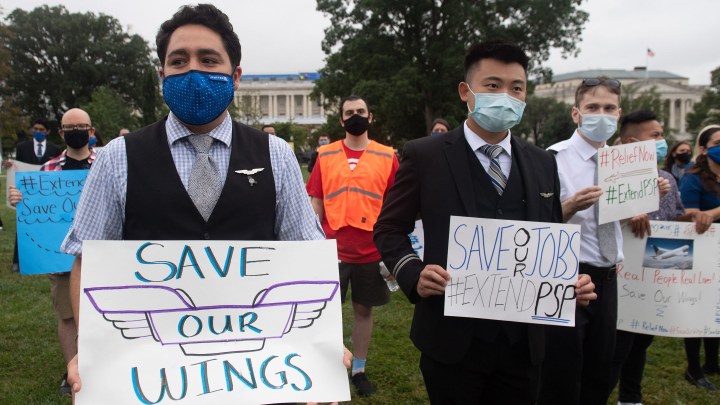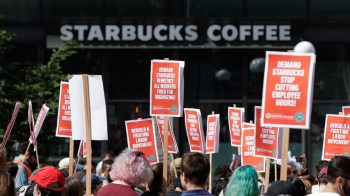
The share of the workforce represented by unions increased last year
The share of the workforce represented by unions increased last year

The Biden administration on Monday appointed a new acting general counsel to lead the National Labor Relations Board. Peter Sung Ohr is expected to be more friendly to union organizing than his predecessor from the Trump administration, Peter Robb, who was dismissed right after the inauguration last week.
The Bureau of Labor Statistics reports the rate of union membership was up in 2020, bucking the downward trend in previous years.
After decades of declining unionization, in the middle of a pandemic, “the share of the workforce that’s represented by a union jumped up, from 11.6 percent to 12.1 percent,” said Heidi Shierholz, senior economist and director of policy at the Economic Policy Institute.
Shierholz said more than 20 million workers lost their jobs last year, union and non-union alike. But she said union workers “lost fewer jobs than their nonunion counterparts. And so the unionization rate actually rose.”
She said unions successfully negotiated furlough and work-share arrangements to preserve jobs.
The new Biden administration wants to keep this unionization trend going, said Ken Jacobs at the UC Berkeley Labor Center, “changing the law to make it more friendly to workers and easier to organize, and create real penalties on employers who violate the laws.”
Jacobs said he expects new organizing drives in low-wage service sectors like health care, hotels and restaurants and e-commerce.
There’s a lot happening in the world. Through it all, Marketplace is here for you.
You rely on Marketplace to break down the world’s events and tell you how it affects you in a fact-based, approachable way. We rely on your financial support to keep making that possible.
Your donation today powers the independent journalism that you rely on. For just $5/month, you can help sustain Marketplace so we can keep reporting on the things that matter to you.

















